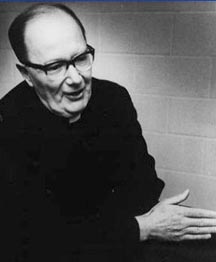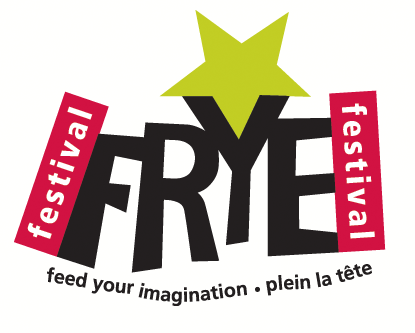Bernard Lonergan
Responding to Joe Adamson
Perhaps, a little later, Joe, I’ll be able to offer a more adequate response to your posting which I really enjoyed. It was lively, direct and disturbing to some of my friends who told me to stop sending them such diatribes. But seriously, it touched on points that I worry about myself, especially the subjection of human concerns to metaphysical transcendental norms which I take to mean Nobodaddy in Blake and the priest and king in Joyce’s Ulysses.
For the moment, here are a few points. As you well know, Frye was a double major in Philosophy and English and initially I searched his writings for evidence that he was philosophically an idealist or a naive realist. I was amazed to find that he was neither. He was like Lonergan a critical realist: reality is reached in the act of judgment, however probable it may be. After reading the first chapter of Fearful Symmetry, The Case Against Locke, I was committed to making a serious study of Frye.
In the late 60s, Lonergan was introduced to the syllabus of the Jesuit seminary, Dublin, Ireland. It is hard to describe what a breath of fresh air it was compared to the old Latin texts which were used up till then. We initially wondered what good could come out of Canada, especially in the areas of philosophy and theology, which the Germans had taken over.
What we found in Lonergan’s Insight was an alternative to scholasticism with its metaphysics and epistemology. It was an alternative to faculty psychology with its focus on the attributes of the soul:memory, intelligence, and will. Instead we were invited to examine our conscious operations: “what” questions and “is” questions as the prior conditions for having an insight.
Our basic texts turned out to be detective novels rather than Aquinas. In a detective novel all the clues are given, yet we fail to spot the criminal, until we have the required insight. Lonergan had studied the act of insight in Plato and Aristotle and Aquinas who did not thematize the act, as Lonergan does in his INSIGHT, but they knew that it was insight that put life into their otherwise dry works.
Lonergan’s then worked out a method in theology based on his book Insight which examines modern science, mathematics, common sense, etc. The point of working out a Method in Theology was to enable theologians to police themselves by peer approval, instead of of being condemned or silenced by some bishop in Rome.
Lonergan’s point of contact with Frye is that they are both Canadian: Sherbrook for Frye and Buckingham Quebec for Lonergan. They both have an encyclopaedic approach to their work. They both work with a four leveled universe, a squared circle diagram, as Joe mentions in his book, A Visionary Life. Lonergan assigns a transcendental precept or norm to each conscious level which we reach through acts of self-transcendence: Be Attentive, Be Intelligent, Be Reasonable, Be Responsible. But these are not some metaphysical entities, some attributes of the soul, these are are personal acts which can be verified in one’s own consciousness. And this verification is what the exercises in Insight are designed to bring about.
Similarly, my reading of Frye’s Secular Scripture brought me to proclaim Frye as the Einstein of the verbal universe. There Frye presents us with four levels of time and space. There is demonic time (Macbeth’s tomorrow, and tomorrow) and there is demonic space (Hell). There is ordinary time (clocks) and ordinary space (mirrors). There is cultural time (music) and there is cultural space (painting). There is anagogic time (Now, the real present) and there is anagogic space (Here, the real presence).
So, to conclude for the moment, Lonergan and Frye share in Blake’s fourfold vision, however much it remains only implicit in the work of Lonergan.


